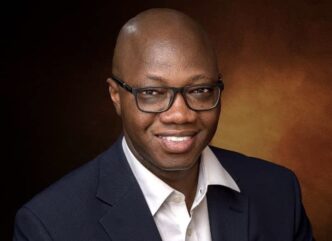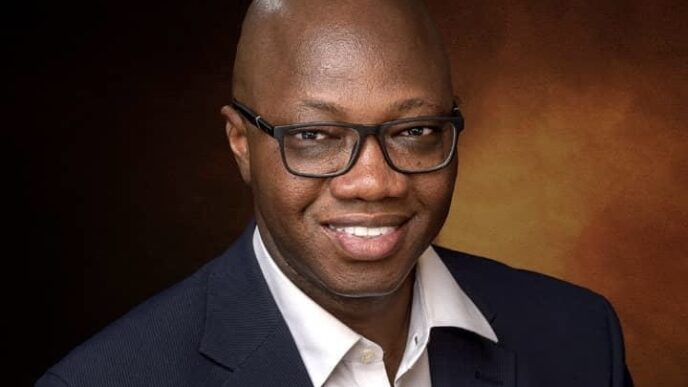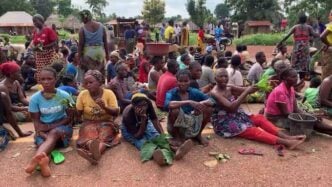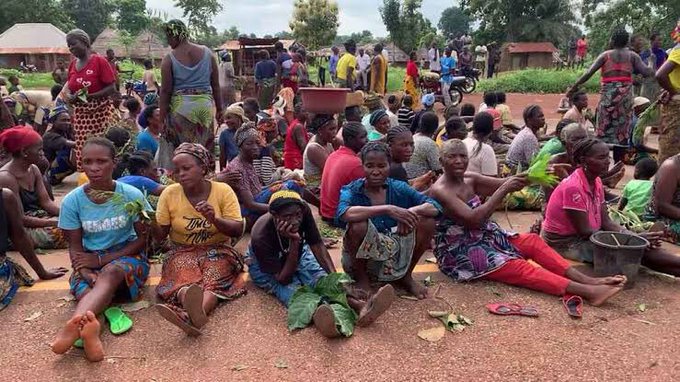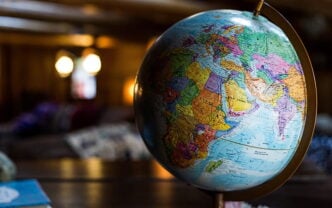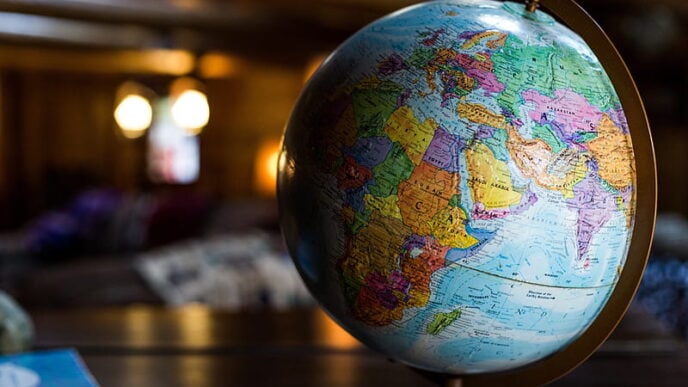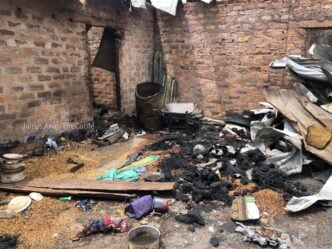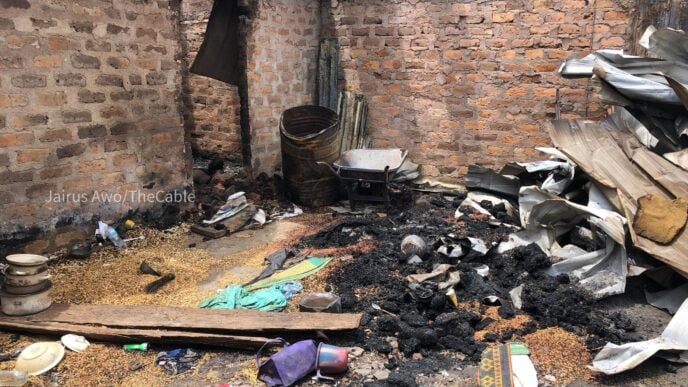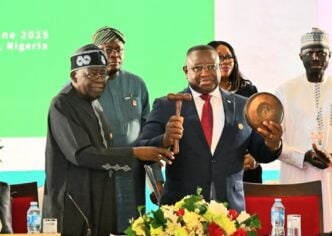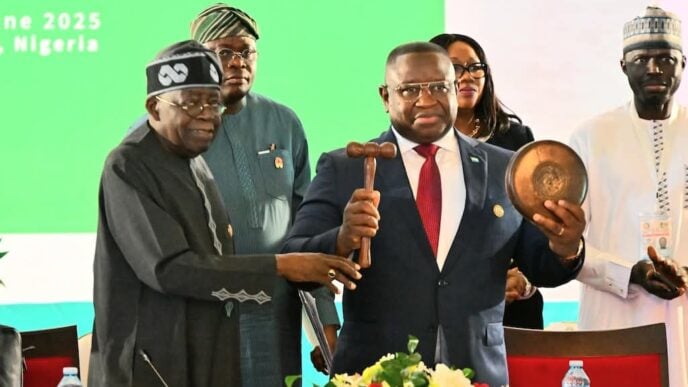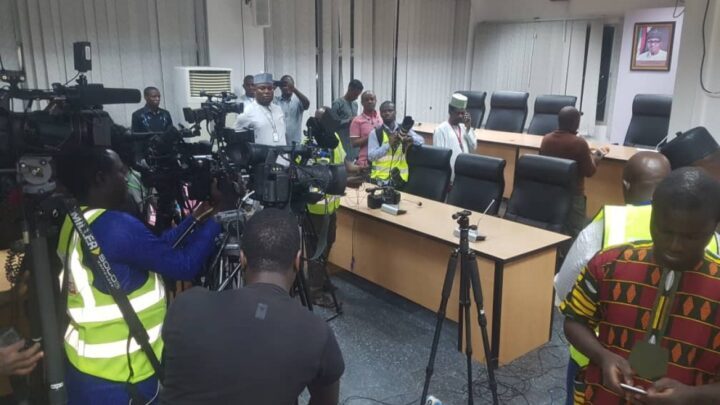BY AUWALU JAMILU
On Thursday, 19th June, the ancient, yet forward-leaning, city of Kaduna bore witness to more than the customary grandeur of a presidential visit. It was a day when oratory met achievement, when symbolism danced with substance, and when the resonant ideals of governance found embodiment in bricks, steel, and the silent dignity of renewed trust. President Bola Ahmed Tinubu’s journey to Kaduna was not merely a federal visitation to a constituent state; it was, in essence, a pilgrimage to a rising citadel of progress — a state undergoing not just development, but transformation. And at the heart of this metamorphosis stood Senator Uba Sani, the Governor of Kaduna State, whose stewardship has become a canvas for the artistry of good governance.
In a nation too often starved of sustainable narratives, Kaduna has quietly emerged as a bastion of intentional leadership, where peace is not a platitude but policy, and where the echoes of resilience reverberate through newly constructed roads, reopened schools, and thriving farmlands once desolate with despair. The President’s visit was not only to inaugurate infrastructure but to consecrate progress — to stamp federal endorsement upon a model that blends the soul of empathy with the sinew of strategic reform.
At Rigachikun in Igabi Local Government Area, the commissioning of the Institute of Vocational Training and Skills Development signified more than an architectural feat. It announced a generational covenant — a sacred promise that the youth of Kaduna shall no longer be bystanders in the economy of their future. With the Vocational Training and Skills Development Institute replicated across Rigachikun, Soba, and the historically vibrant Samarun Kataf, this initiative transcends the limitations of mere education. It seeks to re-engineer the human resource fabric of Kaduna State, equipping young minds with globally relevant skills under the Nigerian Skills Qualification Framework (NSQF), and certifications from Microsoft, Google, Cisco, and Huawei. It is a movement from dependence to dignity, from stagnation to skilled self-sufficiency.
Yet, the story of Kaduna’s reawakening is not only found in steelwork and certificates. It is equally written in the hearts of its people, who have emerged from the shadows of insecurity into the dawn of communal harmony. As Governor Sani noted with an eloquence that sprang not from political choreography but from lived conviction, “When we assumed office in 2023, Kaduna was a state under siege.” His recollection was not apocalyptic but factual — an honest admission that lends greater glory to the progress now evident. Villages once reduced to silence by the specter of banditry now echo with laughter, markets have burst again into colourful commerce, and roads previously deserted are once more veins of vitality.
Advertisement
The President, visibly moved, commended this resurgence with measured gravity. “Uba Sani is an agent of change, stability, love, unity, and progress,” he declared. His words were not ornamental but observant, born of a firsthand encounter with the human and infrastructural recalibration taking place. In Millennium City, the commissioning of a state-of-the-art 300-bed Specialist Hospital, now bearing the name Bola Ahmed Tinubu, was a poignant moment — not of self-congratulation, but of continuity. This hospital, conceived nearly two decades ago and mired in administrative limbo, has at last been resurrected under a government that sees the past not as a graveyard of failed promises, but as a quarry from which to mine future purpose.
In the realm of transportation, Kaduna has emerged as a pacesetter, not merely following federal blueprints but innovating from within. With 100 Compressed Natural Gas (CNG) buses already introduced under the Kaduna Subsidized Transport Scheme (KSTS), Governor Sani’s government has taken a bold stride towards ecological stewardship and economic relief. While all residents will enjoy subsidized fares on the buses, workers, retirees, and students ride for free in the initial six-month phase, a gesture that is both socially responsive and strategically astute. Meanwhile, Governor Uba Sani has since done the groundbreaking for the Kaduna Bus Rapid Transit (KBRT) system and also the groundbreaking for the Southern Terminal — Northern Nigeria’s first and only BRT — speaks volumes of the state’s infrastructural foresight. It is not merely about reducing traffic congestion, but about engineering a new psychology of urban life: orderly, efficient, and humane.
President Tinubu, who in his own tenure as Governor of Lagos State pioneered urban transit models, recognized this endeavor as a kindred flame. His commitment was immediate and tangible. Through the Federal Government’s 2025 budget, a monumental ₦100 billion was earmarked for the Kaduna Light Rail Transit, a testament to a federal-state synergy that prioritizes the movement, safety, and economic liberty of ordinary Nigerians.
Advertisement
But beyond the asphalt and steel lay the true genius of Kaduna’s transformation under Governor Uba Sani — a peace forged not through the cold imposition of authority, but through the warm architecture of trust. The Kaduna Peace Model, as conceived and championed by Governor Sani, is perhaps the most enduring legacy of this administration. It is not enforced silence, but earned harmony. It rests upon a triadic framework: strategic coordination, community engagement, and socioeconomic revitalization.
Like Governor Uba Sani’s speech at the historic event revealed, over fifty consultative meetings with traditional rulers, Fulani herders, farmers, youth, and religious leaders underscore the Governor’s belief that peace cannot be dictated from podiums, but must be negotiated in community halls and under village trees. The creation of Peace Councils in each senatorial zone — chaired by respected elders — reaffirms the value of indigenous wisdom in mediating conflict and restoring kinship. And when paired with targeted social investments — stipends, uniforms, radios, and mobility for local vigilantes — the model gains muscle and sustainability.
The result? Farmlands once abandoned have now reclaimed over 500,000 hectares of productive soil. Schools previously shuttered due to insecurity — over 535 of them — have reopened. And perhaps most astonishingly, Birnin Gwari, once synonymous with terror, now dispatches no fewer than 28 trailers of livestock daily to Lagos. Such statistics, though seemingly dry, are wet with hope and fertilized by real human tears — tears of struggle, now transforming into tears of gratitude.
If peace is the precondition of prosperity, Kaduna’s present moment is the dividend of patience, vision, and strategic alignment. Governor Uba Sani’s government has not treated security as a military challenge alone, but as a complex socio-political equation requiring both strength and empathy. That equation has begun yielding profound results. What began as a bold campaign against lawlessness has matured into a holistic social renaissance.
Advertisement
President Tinubu’s presence at Murtala Square during the Grand Reception was, in every sense, an act of affirmation. His praises, generous yet grounded, underscored that Nigeria, though vast and variegated, can still converge at the altar of excellence. The federal government’s interventions — particularly in transportation, security architecture, and economic empowerment — have found fertile soil in Kaduna’s administrative resolve. And in return, Kaduna has become a mirror, reflecting back to Abuja what transformational leadership looks like when decentralized and democratically nourished.
Yet governance in Kaduna has not rested upon the laurels of order alone. Rather, it has surged into the terrain of inclusive economic development. A perfect emblem of this is the revitalization of Panteka Market in Tudun Wada. Once a sprawling informal space of chaotic artisan trade, it has now been transformed into the largest informal skills acquisition hub in Africa, eclipsing even Kenya’s famed Jua Kali. With over 38,000 artisans trained in vocations ranging from carpentry to electrical work, this effort signals not just economic activity but a dignified return to the culture of handwork and craft as engines of self-reliance.
To coordinate such ambitious human capital projects, Governor Sani inaugurated the Kaduna State Skills Development Council, which he personally chairs. This Council, operating with a scope rare in sub-national governance, oversees a comprehensive framework to confront youth unemployment with precision and foresight. Through strategic planning, partnerships, and a relentless will to restructure opportunity itself, Kaduna has positioned itself as a laboratory for what localized developmental economics can achieve.
No less impressive is the state’s infrastructure renaissance. The Governor’s report of 79 roads spanning over 780 kilometers — of which 28 have already been completed — is not a catalogue of contracts, but a statement of connectivity. From Saminaka to Zangon Kataf, Giwa to Godogodo, the arteries of the state now throb with life, commerce, and kinship. Roads, in this context, are not just asphalt pathways, but reconnections — of families, of economies, of regions long rendered distant by disrepair.
Advertisement
Education, too, has received the attention it so direly needed. In just two years, 62 new secondary schools have risen from the soil of commitment. Over 1,700 classrooms have either been constructed or rehabilitated. Tuition fees across all state-owned tertiary institutions have been slashed by 50%, resulting in exponential increases in enrollment — not as a matter of optics, but of real access for real families. It is policy speaking the language of the poor, and planning that dignifies the dreams of the marginalized.
Healthcare has similarly undergone transformation, not just in form but in philosophy. Over 1,100 Primary Healthcare Centres (PHCs) now dot the landscape of Kaduna, with 255 of them upgraded to Level 2 — the highest in Nigeria. Every ward in the state now boasts a functioning PHC, placing life-saving services within reach of every citizen. Additionally, each of the state’s 23 Local Government Areas now hosts a Centre of Excellence hospital — part of a deliberate strategy to decentralize quality healthcare and stem the tide of medical tourism from the region.
Advertisement
The capstone of this healthcare revolution is the 300-bed Bola Ahmed Tinubu Specialist Hospital. Commissioned by the President himself, this edifice stands as more than a tribute; it is an anchor for a new paradigm — a system that no longer sends its sick to the South or abroad in search of dignity, but which proclaims, with confidence: healing can happen here.
Yet the heart of Governor Sani’s governance model beats not only in institutions, but in inclusion. He has governed Kaduna not through the lens of sectionalism but with the broad gaze of statesmanship. “When I took the oath of office,” he remarked, “I vowed to govern Kaduna as one — Muslim and Christian, Hausa, Kagoro, Fulani, Gwari, Katab, Kaje, Jaba, Kagoma and several others; APC, PDP, or no party at all.” This is not rhetorical flourish; it is the architecture of a moral pact with the people — a social contract elevated above partisanship, a politics sanctified by purpose.
Advertisement
As a result, Kaduna has become not only a success story but a sanctuary of trust. Political defections into the ruling APC have not been the result of coercion or transactional politics but the migration of belief — citizens moving toward competence, accountability, and inclusivity. Governance here is no longer defined by ethnicity or faith but by results and reliability.
President Tinubu’s Renewed Hope Agenda finds perhaps its most luminous expression in Kaduna. His economic reforms — the painful but necessary removal of fuel subsidies, the unification of exchange rates, and the recalibration of institutional integrity — have found sympathetic application in Kaduna’s social architecture. The Kaduna State Financial Inclusion Strategy, bolstered by an Executive Order, has brought over 2.5 million formerly unbanked citizens into the formal economy. These are not mere account numbers but farmers, artisans, and traders newly armed with the tools of financial autonomy.
Advertisement
Through this inclusion, the state has also built a credible register of its poor and vulnerable, a data resource that now empowers targeted interventions in sync with the federal government’s broader poverty alleviation agenda. What results is a choreography of compassion — where policies no longer grope in the dark, but move with data-driven precision.
This cooperative federalism — marked not by dependence but dynamic partnership — is perhaps the crowning glory of President Tinubu’s visit. His national leadership, stern yet empathic, reformist yet consultative, has found in Kaduna a loyal executor of shared vision. And Governor Uba Sani, in his poised humility, continues to prove that politics is not a game of survival, but a theatre of service.
In Kaduna, what we witness is not merely administrative efficiency, but the emergence of a new national ethos — one born of a harmonization between local dynamism and federal stewardship. President Tinubu’s visit was not a political courtesy call. It was a pilgrimage to a state reborn through grit, vision, and a refusal to be defined by its past traumas. His embrace of Governor Uba Sani’s model was itself a tacit call to the rest of Nigeria: this is what is possible when power is wielded with integrity, and authority tempered with empathy.
Governor Sani’s public expression of gratitude, particularly his affirmation of President Tinubu as a steadfast ally to Northern Nigeria, was not flattery cloaked in formality. It was an articulation of something deeper — recognition that in a polity where historical grievances often mutate into distrust, President Tinubu has chosen to govern as a national custodian, not a regional favourite. His policies do not favour zones; they empower citizens. His reforms do not pander to interests; they rebuild institutions.
In this spirit, Kaduna now becomes more than a state; it becomes a case study. The Kaduna Peace Model has become a lodestar for community-led peacebuilding. Peace councils in each senatorial district, chaired by locally respected elders, function not just as advisory bodies but as living organs of reconciliation and mediation. This system did not emerge from a theoretical manual; it was hewn from the raw material of Kaduna’s own pain, and polished into policy by leadership that listens.
And because the roots of violence often lie in neglect, the Uba Sani administration’s simultaneous investment in infrastructure, education, and health was not just smart—it was moral. Over 500,000 hectares of abandoned farmland have returned to cultivation. Agricultural commerce, once choked by insecurity, is thriving. As noted by Governor Sani, no fewer than 28 livestock-laden trailers now depart Birnin Gwari daily for Lagos—a statistic inconceivable just two years ago. The roads are busy not with fleeing families, but with traders, teachers, and students.
This interdependence of peace and productivity is Kaduna’s unique contribution to Nigeria’s political lexicon. It teaches that security is not only the absence of violence, but the presence of opportunity. It insists that the fight against terrorism must also be a fight against poverty, illiteracy, and exclusion.
And yet, with every accomplishment, the rhetoric remains humble. Governor Uba Sani’s tone throughout his speech — grateful, resolved, unifying — betrayed no triumphalism. It spoke instead to a philosophy of stewardship. When he recalled that Kaduna was “a land plagued by violence, banditry, and deep-seated mistrust,” it was not to bemoan the past, but to underline the magnitude of what has been overcome. When he declared that “governance in Kaduna has transcended partisanship,” he was not making a boast, but extending an invitation: Come, let us build together.
This spirit of coalition-building — across ethnicities, faiths, and political lines — is the most radical thing happening in Kaduna today. It defies a cynical national narrative that too often suggests division is inevitable. It tells a different story: that when leadership is principled and proximity is honoured, peace is not a miracle; it is a consequence.
It is this same logic that undergirds President Tinubu’s broader Renewed Hope Agenda. What some mistook for austerity — such as fuel subsidy removal — was in fact an audacious recalibration, long overdue. Under Governor Sani’s localized implementation, those national sacrifices have been softened with deliberate, targeted cushioning mechanisms: subsidized transport, education fee reductions, and health facility expansion. The pain is not denied, but neither is it wasted. It is converted into purpose.
In return, Kaduna stands as both a beneficiary and a benefactor. It receives federal attention but also gives back a model—tested, adaptable, and inspiring. For other sub-national entities seeking to translate lofty aspirations into measurable outcomes, Kaduna’s trajectory offers a blueprint: one grounded in data, dialogue, delivery, and devotion to the people.
Indeed, Kaduna today is a poem of paradoxes resolved: a once-besieged land now building the most expansive infrastructure in its history; a multi-ethnic melting pot that governs without ethnocentrism; a region once defined by its violence, now a pilot site for peace.
And in this resurgence lies a political and moral message for the nation. In the words of Governor Sani: “Kaduna is more than a state; it is a microcosm of Nigeria’s diversity, challenges, and potential.” And if that be true, then let Kaduna’s renaissance be a rehearsal for Nigeria’s own.
President Tinubu’s visit, framed in celebration but cloaked in symbolic gravitas, affirms this. His partnership with Governor Uba Sani is not a transaction of power, but a transmission of legacy — from a national leader forging paths at the federal level, to a state executive executing with granular brilliance.
Together, their work invites a renewed political imagination — one in which governance is not the preservation of status quo, but the disruption of despair; not a rotation of failure, but a revolution of faith. And in Kaduna, that revolution has not only begun, it is flourishing.
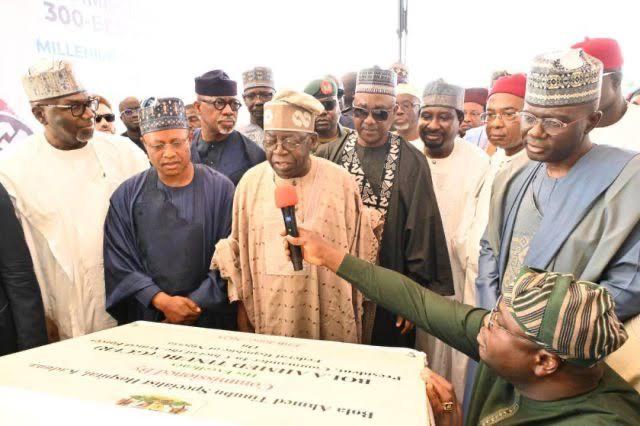
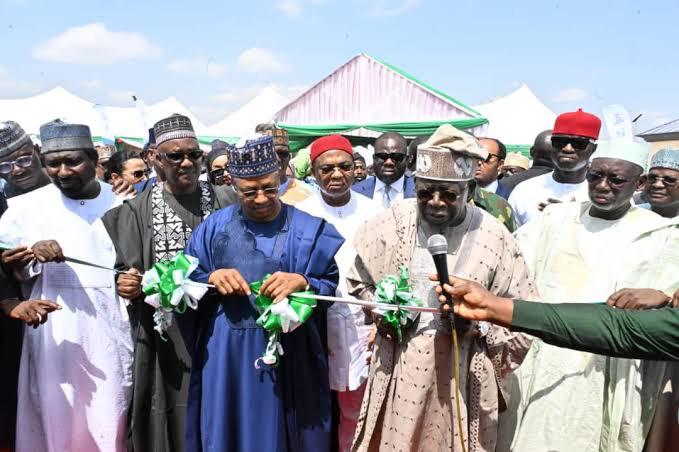
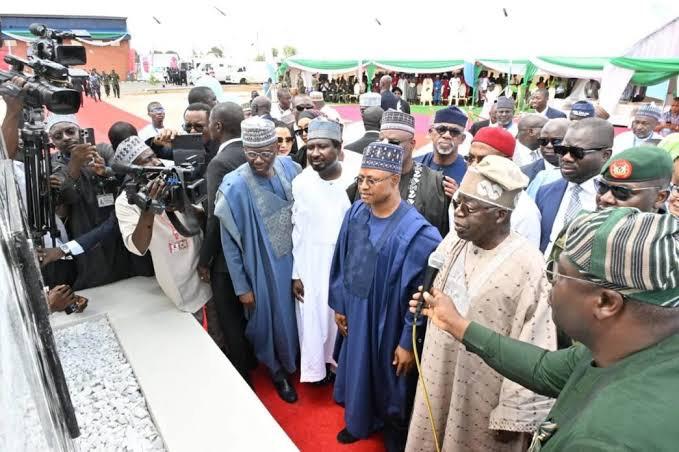
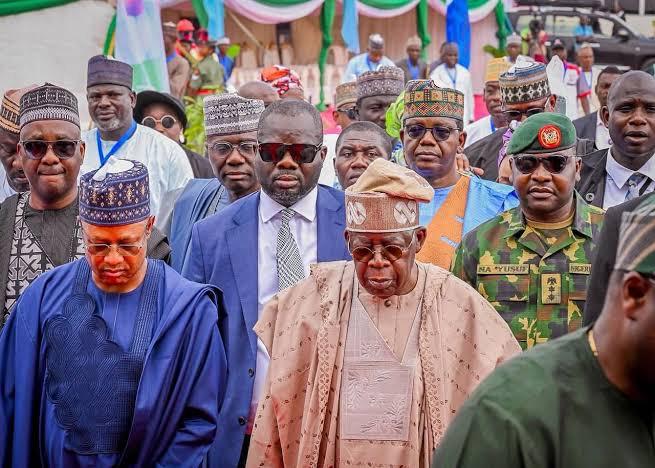
Jamilu, a public policy expert & analyst, is also a freelance Journalist and resides in Kawo, Kaduna
Views expressed by contributors are strictly personal and not of TheCable.
